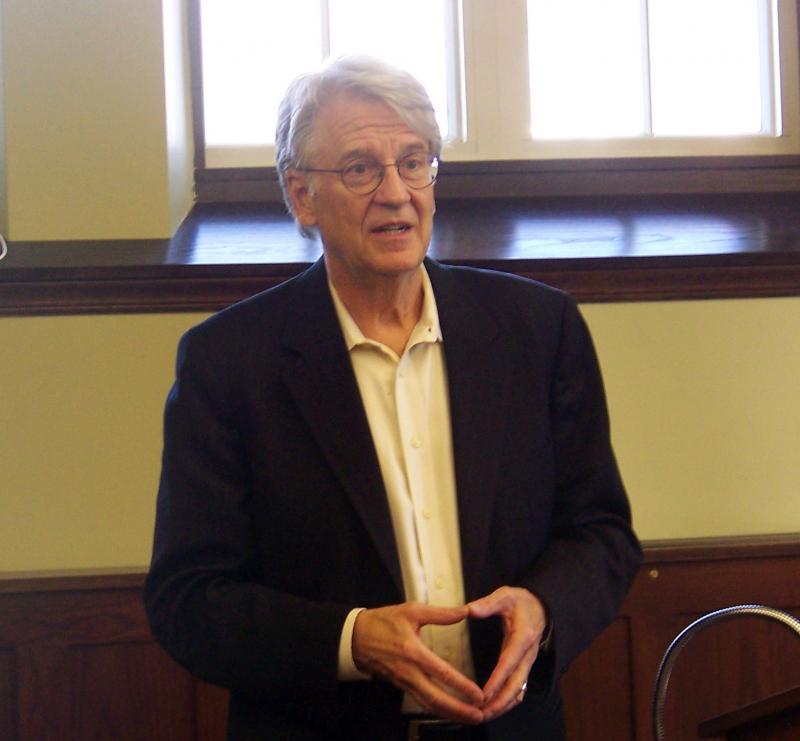Art imitates life in judge's novel
Judge Michael Ponsor’s memories of presiding over a rare capital punishment trial in the state are fresh in his mind more than 10 years later.
“I can still remember the moment when the court clerk came into my office and I was wondering if I would have to sign an execution order,” he told a group at the Mattapoisett Library on Sunday afternoon. “I usually accept the verdict in the courtroom, but in this case I wanted to know beforehand if I was going to order someone executed.”
As a federal judge, Ponsor drew on his experience to write his first novel “The Hanging Judge.”
In 2001, Ponsor presided over the trial of Veterans Affairs nurse Kristen Gilbert who was convicted of injecting four veterans with lethal doses of the drug epinephrine. At the time, Gilbert worked in a Veterans Hospital in Northampton. It was the first trial in Massachusetts that carried the possibility of the death penalty in 50 years. Massachusetts does not have capital punishment, but the prosecution had the authority to seek the death penalty because the crimes happened on federal property.
The verdict for Gilbert was guilty with a life prison sentence. The trial was the most demanding and stressful one Ponsor has faced. After it ended, he wrote a nonfiction piece for the Boston Globe. Feeling unsatisfied with the result, he turned to fiction, which he has dabbled in over the years.
Ponsor graduated from Harvard and Yale Law Schools. For 10 years he served as U.S. Magistrate before President Bill Clinton appointed him as a U.S. District Court judge in 1994 in Springfield.
The book’s protagonist, David Norcross, is also a federal judge in Springfield overseeing his first death penalty case. The fictional case features a drug dealer charged with a double murder. Norcross gets the case and deals with pressure from the prosecution, jury problems, all while juggling a new relationship with a free spirited college professor. “The Hanging Judge” can be purchased online at www.amazon.com.















